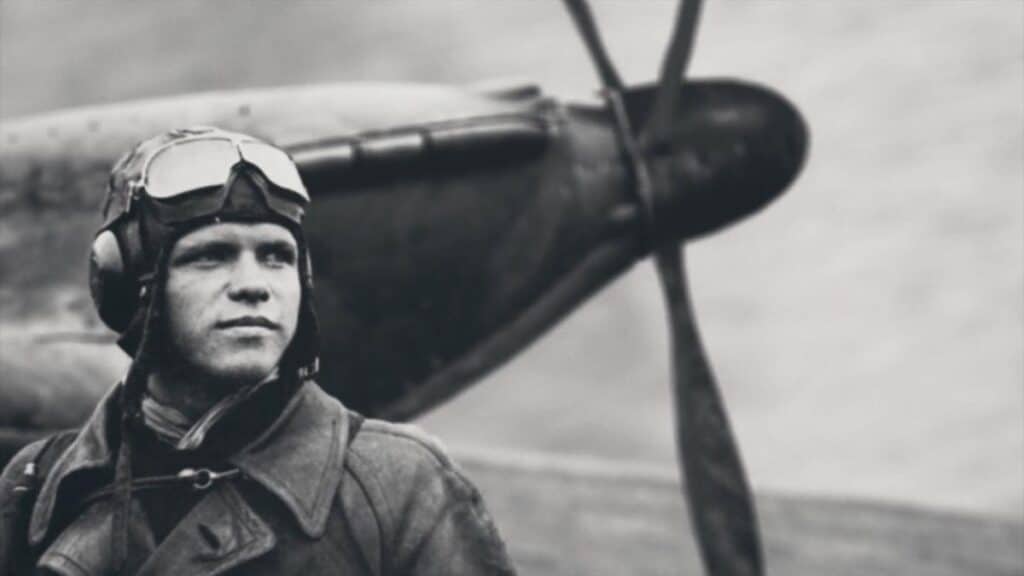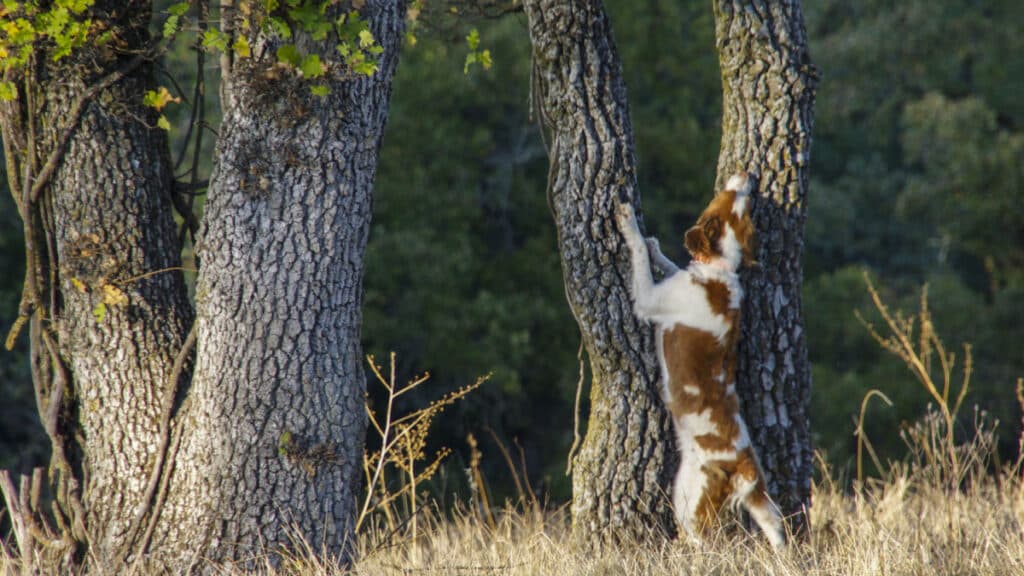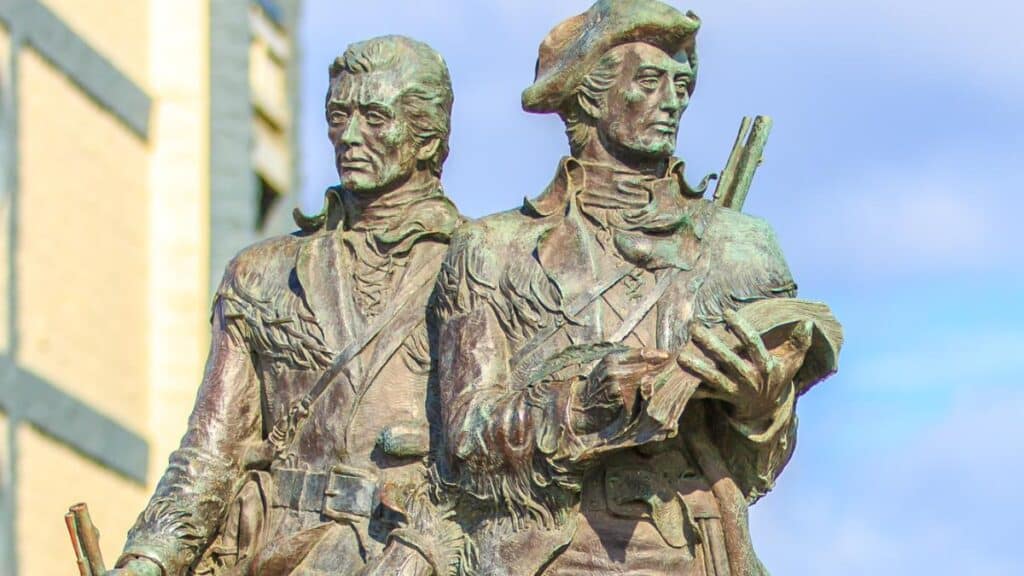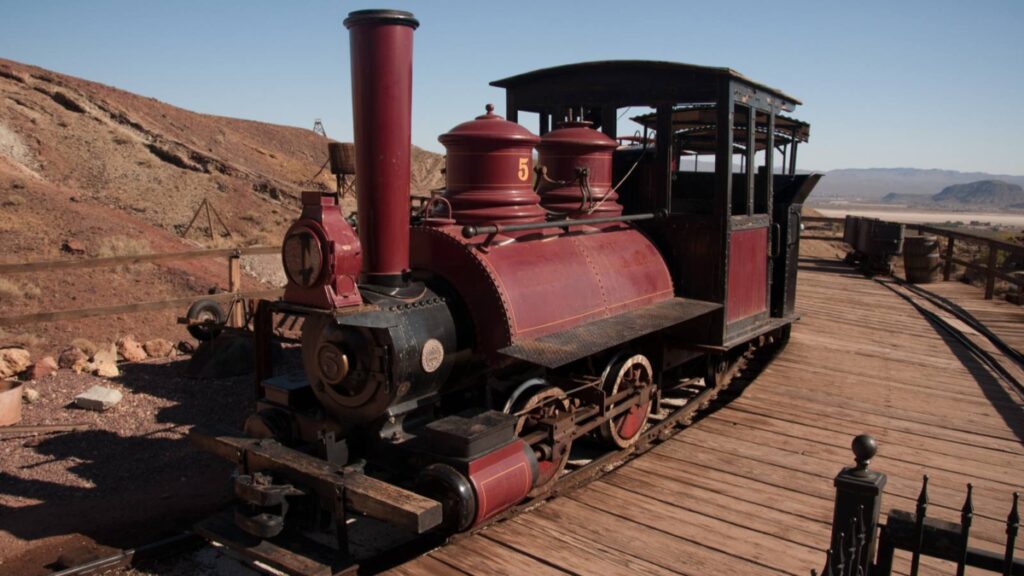One of the most challenging parts of learning a new language is learning the idioms and expressions people use in everyday speech. As native speakers, we use these expressions every day without giving them a second thought!
That is a shame, though, because some of the most common sayings in the English language have fascinating origin stories. Here are ten that stood out to us:
1. Straight From the Horse’s Mouth

You got information directly from the source if you heard something straight from the horse’s mouth.
In the early 1900s, cars were still relatively new. People mostly relied on horses to get around, make deliveries, and do farm work. Younger horses were generally more valuable than older horses because those buying them would get more years of use.
You could tell how old a horse was by looking at its teeth. Instead of asking the seller how old a horse was, people would look straight in the horse’s mouth to make sure they were getting a good deal.
2. Hands Down

It turns out a lot of our common sayings have to do with horses!
When someone says something is hands down the best or worst thing they’ve ever experienced, they’re saying it is absolutely or definitely the best/worst.
This phrase dates back to the 1800s when horse racing was the most popular spectator sport. If a jockey was so far ahead of the competition that he was certain to win, he could put his hands down and loosen the reins.
3. Pull Out All the Stops

When you pull out all the stops, you give something your best effort without holding anything back.
You might think this refers to drain stoppers letting all the water out of a tub or sink, but it’s actually a reference to pipe organs. Stops are used to prevent some pipes from sounding, lowering the overall volume of the organ. Once you pull all the stops out, however, the organ is as loud as it can possibly be.
4. Read the Riot Act

When someone gets read the riot act, they are being reprimanded for their behavior. But did you know the Riot Act was a real piece of legislation in 18th-century England?
The real Riot Act was established in 1715 and allowed authorities to label groups of more than 12 people as threatening peace. Public officials would literally read these groups an excerpt of the Riot Act before asking them to leave. Anyone still there an hour later could be arrested.
5. Turn a Blind Eye

When you turn a blind eye to something, you purposefully ignore it.
In the late 18th and early 19th centuries, Horatio Nelson was a celebrated officer in the British Navy. He also happened to be blind in one eye.
During a battle against a large fleet of Danish and Norwegian ships, his superior officer signaled him to withdraw. Nelson supposedly held the telescope to his blind eye, remarked that he saw no signal, and continued fighting, ultimately winning the battle.
6. Give Someone the Cold Shoulder

When you give someone the cold shoulder, you ignore them or act purposefully chilly to get them to go away.
Though this phrase was first used in the early 19th century, it dates back much further than that. When a guest came to your home, you would be expected to feed them. If they were a welcome guest, you would make sure to give them a nice, warm cut of meat.
However, if you didn’t want that guest sticking around, you could give them a cold slice of meat, usually from the mutton or pork shoulder. This was a subtle way of telling them they had overstayed their welcome.
7. Go the Whole 9 Yards

Much like pulling out all the stops, going the whole nine yards means you’ve given something your all.
This is one of the more modern sayings on our list, only dating back to World War II. Fighter pilots would be given 9 yards of ammunition each time they were sent out on a mission. If they came back having used the whole nine yards, it showed they had done everything in their power to take down the enemy.
8. More Than You Can Shake a Stick At

If you have more of something than you can shake a stick at, then you have almost too much!
You’ve probably seen illustrations of shepherds and crooks. They would use those crooks or staffs to control their sheep by shaking it in the direction they wanted the flock to move. However, if there were too many sheep for them to control on their own effectively, they had more than they could shake a stick at.
9. Jaywalking

When you jaywalk, you cross the street in a way you shouldn’t, like crossing when the “Don’t Walk” signal is on or in the middle of the street instead of a crosswalk. But before there were jaywalkers, there were jaydrivers.
“Jay” meant someone inexperienced at something, similar to a greenhorn. A jaydriver couldn’t figure out how to drive a car or carriage on the right side of the road. Jaywalker later meant someone who didn’t follow correct sidewalk etiquette before evolving into its modern meaning.
10. Barking up the Wrong Tree

The phrase “barking up the wrong tree” is used when someone is mistaken or misguided in their pursuits. This saying has its roots in the early 1800s during the era of the American frontier. Hunting dogs were used to chase prey up trees for the hunters. Sometimes, the dogs would bark at the wrong tree, where the prey was not present, leading the hunters on a wild goose chase, hence the phrase.
11. Bite the Bullet

To “bite the bullet” means to face a painful or otherwise unpleasant situation with courage and fortitude. This phrase dates back to the time when there was no anesthesia available for soldiers undergoing surgery on the battlefield. They would be given a bullet to bite on to endure the pain.
12. Break the Ice

“Breaking the ice” refers to overcoming initial social awkwardness. The phrase has its origins from the maritime world, where ships known as “icebreakers” would be sent out to break through the ice to create a path for other ships to follow.
13. Caught Red-Handed

Being “caught red-handed” refers to being caught in the act of committing a wrongdoing. The phrase has its origins in Scotland and refers to the act of catching a person with blood on their hands from either poaching or murder.
14. Spill the Beans

The phrase “spill the beans” is used when someone reveals a secret or discloses information unintentionally. The origin of this phrase dates back to ancient Greece, where people would cast votes by placing black or white beans in a jar. A white bean indicated a positive vote, while a black bean was a negative vote. The results were supposed to be a secret until the count, but if the jar was knocked over and the beans were spilled, the results would be revealed prematurely. Hence, the phrase “spill the beans” came to signify revealing secret information.
9 Signs You’re Smarter Than Average and Three Signs You’re Not

Do you think you’re smarter than most of the population? Check out these signs to see if you make the cut or if you should go back to school.
9 Signs You’re Smarter Than Average and Three Signs You’re Not
Could You Have Done What Lewis and Clark Did? Probably Not and Here’s Why

Lots of people are into hiking, although very few have the stamina to do what Lewis and Clark did. Can you even imagine making an 8,000-mile cross-country trek into unchartered territory? Take a minute to explore these 12 riveting realities of the Lewis and Clark expedition that will leave you questioning your own survival skills.
Could You Have Done What Lewis and Clark Did? Probably Not and Here’s Why
Step Into the Past: 10 American Ghost Towns to Explore

While the United States may lack the ancient history of other nations, it certainly holds its own when it comes to ghost towns. As highlighted in a recent New York Times report, we’re talking about an impressive count of approximately 3,800 abandoned settlements.
Step Into the Past: 10 American Ghost Towns to Explore
No Passport, No Problem: You Don’t Need One to Vacation in These Countries

If you’re an American citizen traveling out of the country, you have to have a passport to be allowed into somewhere else, right? While that’s mostly true, there are some exceptions. Some are independent countries, while others are U.S. territories that largely operate independently.
Note: Before you visit any of these places, make sure you look into what the entry requirements are. For example, you may need an enhanced ID or proof of certain vaccinations.
No Passport, No Problem: You Don’t Need One to Vacation in These Countries
Most Dangerous Cities in the World, Ranked: Know Before You Go

These are 10 most dangerous cities in the world, where stunning landscapes and rich cultural heritage collide with alarming crime rates. We’re not saying don’t travel to these locations, but it’s important to be aware in order to stay safe.
Most Dangerous Cities in the World, Ranked: Know Before You Go
This article was syndicated by Our Woven Journey. Featured Image Credit: Deposit Photos.
Demi Michele is a seasoned traveler, turned freelance writer. Having explored most states and ventured internationally, her love for outdoor cafes, new cuisines, and cultural immersion shines through her wide range of articles. Based in Texas with her family and two Scottish Terriers, Demi turns her adventures into captivating travel narratives to share with readers.
